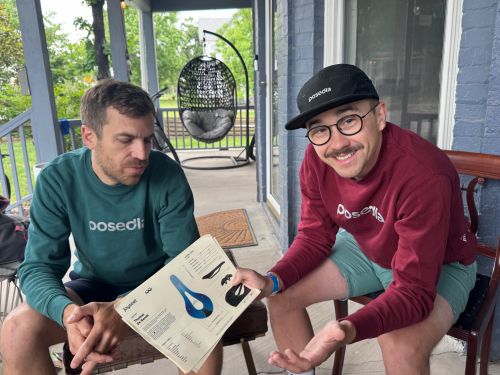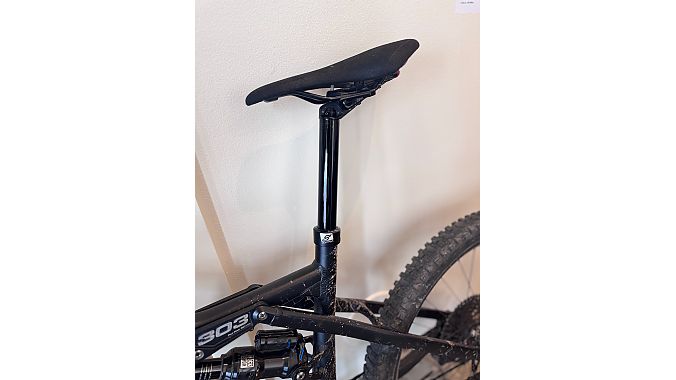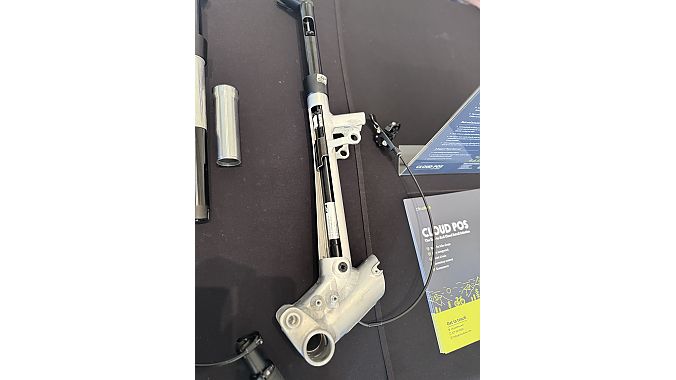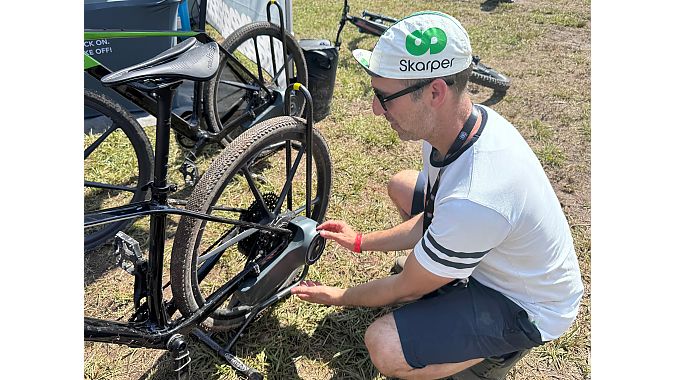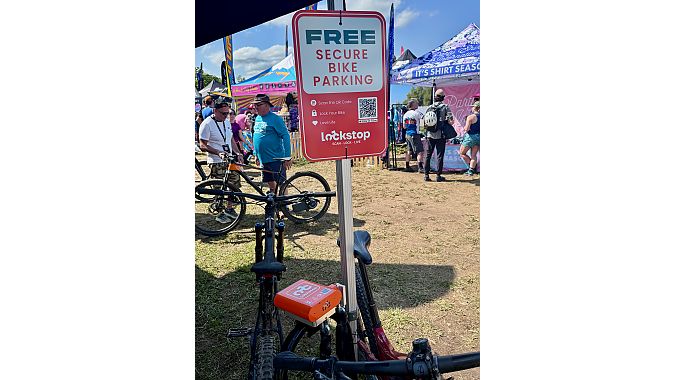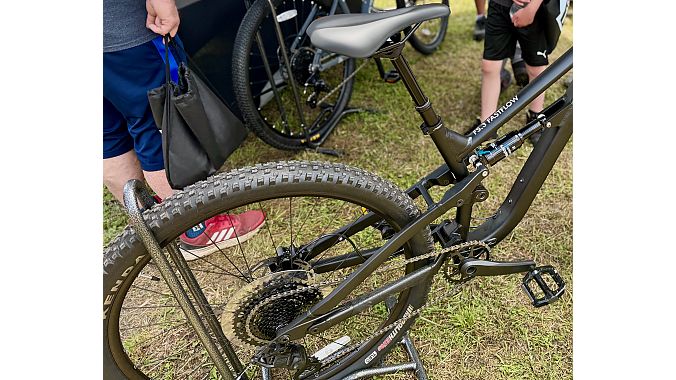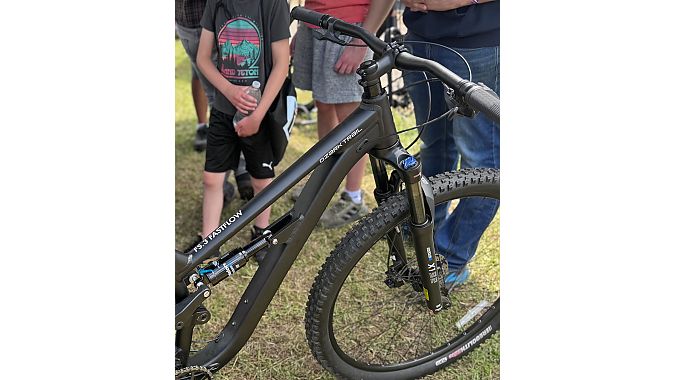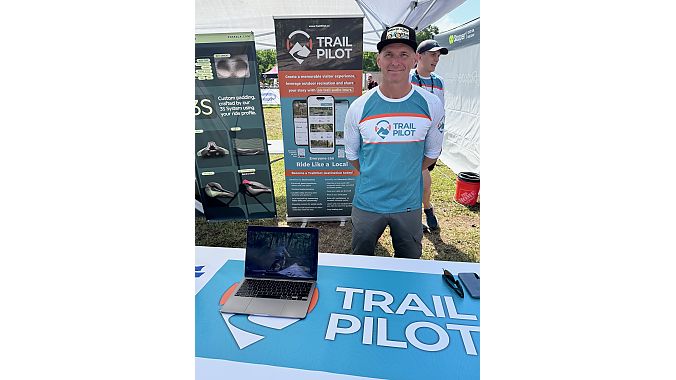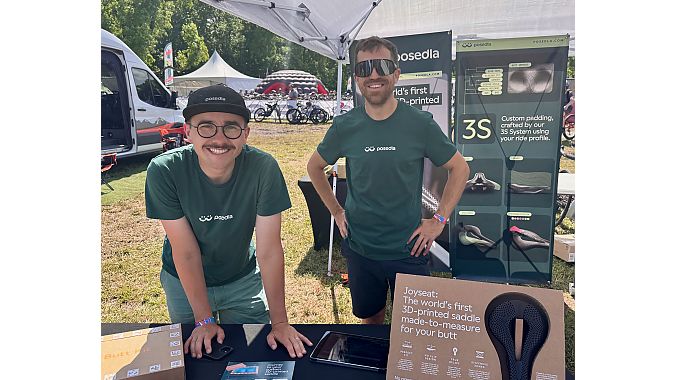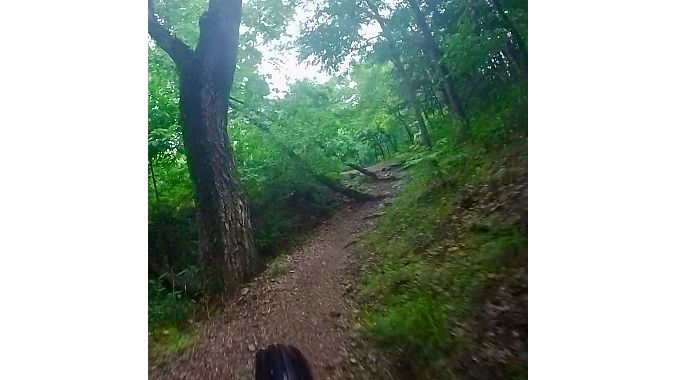BENTONVILLE, Ark. (BRAIN) — Last week BRAIN was in Arkansas for the NBDA Dealer Summit as well as the Bentonville Bike Fest and the conclusion of the inaugural Arkansas Global Cycling Accelerator program. BRAIN is preparing stories for our July magazine about each of the 10 startup companies in the AGCA, but we thought we'd share some sneak peeks of some of the participants, as well as a few other new products on display at the festival and at the Summit.
Ozark Trail’s new $998 full-suspension bike
Walmart was not part of AGCA (although a Walton family fund supports it). But the Bentonville-based retailer made what a company official called a “stealthy launch” of its new Ozark Trail full-suspension 29-inch model at the festival, in a simple 10x10 tent. It’s the most expensive model yet for the house brand, and it (and a similarly priced gravel bike) will be sold exclusively on the Walmart website, not in stores.
The bike was designed by Toronto’s Kevin Quon Studios, which also designed Walmart’s Viathon brand, launched in 2019, and since mothballed. Quon, who was at the event, also has designed bikes for Cervélo, BH, Parlee and other brands over the years.
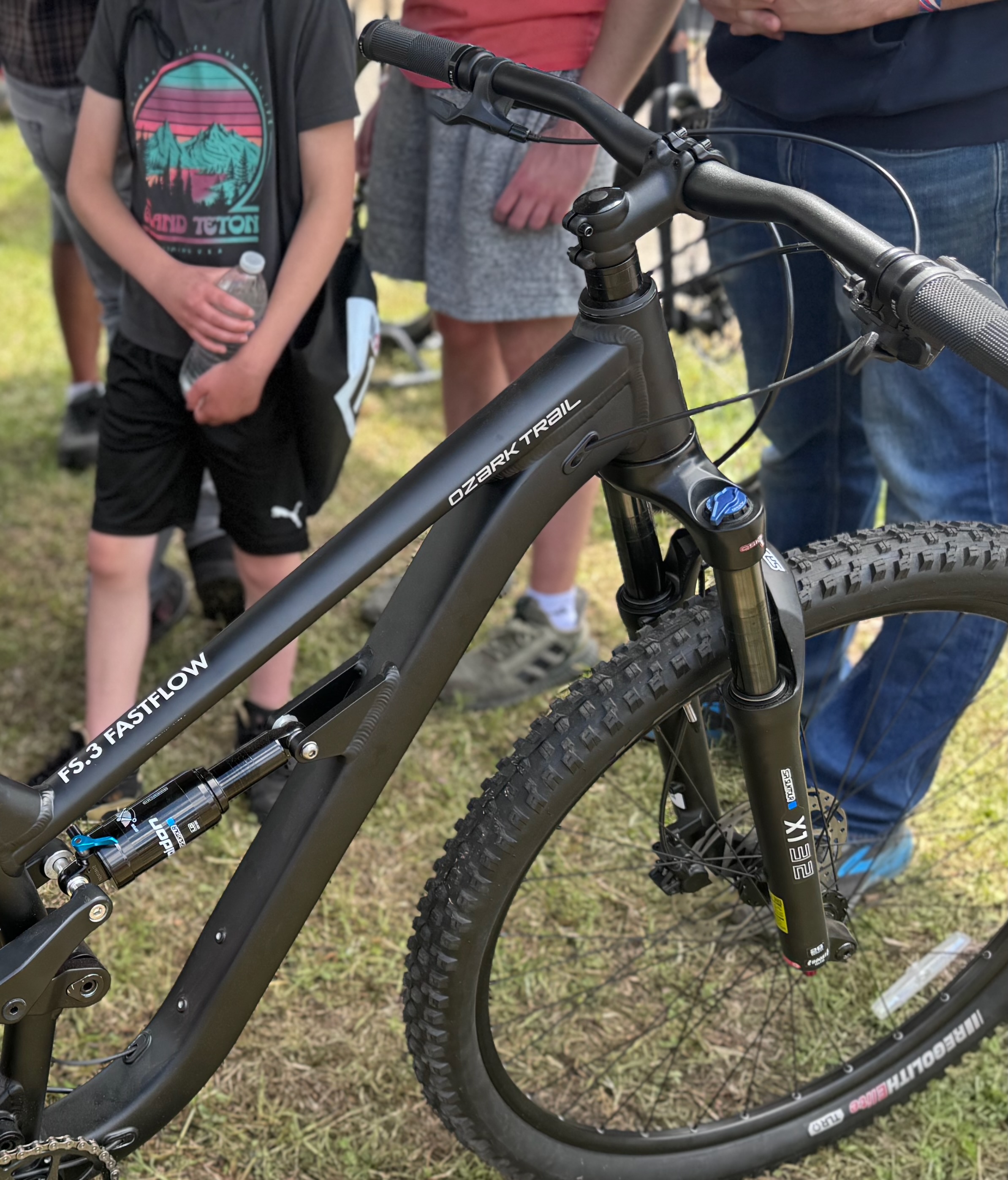
It would be easy to question the bike’s performance and durability due to its low-end Microshift 1x drivetrain and SR Suntour shock and fork. And the straight-gauge, Taiwan-made aluminum frame combined with low-end parts makes for a heavy machine. But where it shines — and differs from many Walmart-sold bikes — is in its use of modern standards, making it upgradeable and repairable down the line. That matte-finished black frame has a tapered headtube, thru axles with Boost spacing, a UDH derailleur hanger, and internal cabling for a dropper post, for example (it comes with a standard seatpost). It comes in three frame sizes and comes with 100mm travel front and rear but Quon said it could be upgraded to 120mm.
Posedla’s custom 3D-printed saddles
Posedla is a startup from the Czech Republic that participated in the AGCA program. It offers one of the industry's first custom 3D-printed saddles. The company has already sold more than 5,000 saddles and sponsors athletes including top gravel racer Thomas De Gendt.
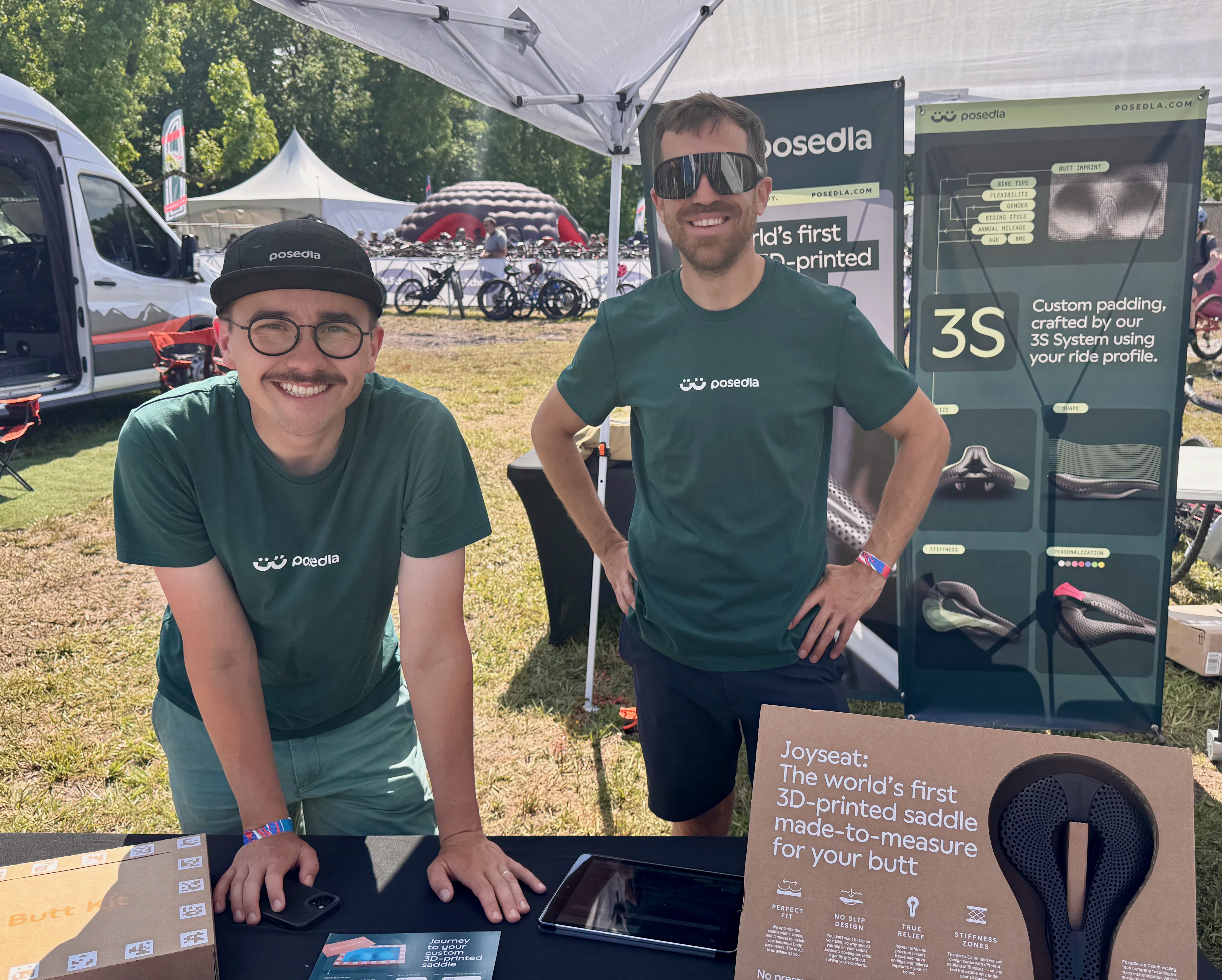 Posedla’s program works like this: A customer is first mailed a box containing what Posedla calls a "Smiling Butt Kit," which contains a gridded material that takes an imprint of a rider’s butt. The kit is not shipped back, however; instead the customer takes a series of photos of the impression and emails those back, along with information about the rider’s weight, riding style and position. The company prints the cushioning onto one of three saddle rail and base options. Options include a carbon base and carbon rail version and a less expensive metal-railed version. Prices start at $349 and the turn around is 2-4 weeks. The company is exploring how to best serve the U.S. market — we’ll report more on that sort of thing in our print magazine article.
Posedla’s program works like this: A customer is first mailed a box containing what Posedla calls a "Smiling Butt Kit," which contains a gridded material that takes an imprint of a rider’s butt. The kit is not shipped back, however; instead the customer takes a series of photos of the impression and emails those back, along with information about the rider’s weight, riding style and position. The company prints the cushioning onto one of three saddle rail and base options. Options include a carbon base and carbon rail version and a less expensive metal-railed version. Prices start at $349 and the turn around is 2-4 weeks. The company is exploring how to best serve the U.S. market — we’ll report more on that sort of thing in our print magazine article.
More information: Posedla.com.
Skarper’s retrofittable e-bike drive system
Another AGCA participant, Skarper is a well-funded British startup with an innovative e-drive system. The system is driven by a special rear disc brake rotor, with the motor and battery unit attaching with one small clamp on the left chainstay. The roughly 8-pound battery/motor/brains unit is mostly supported by the rotor, putting minimal stress on the chainstay and allowing for it be quickly installed and removed.
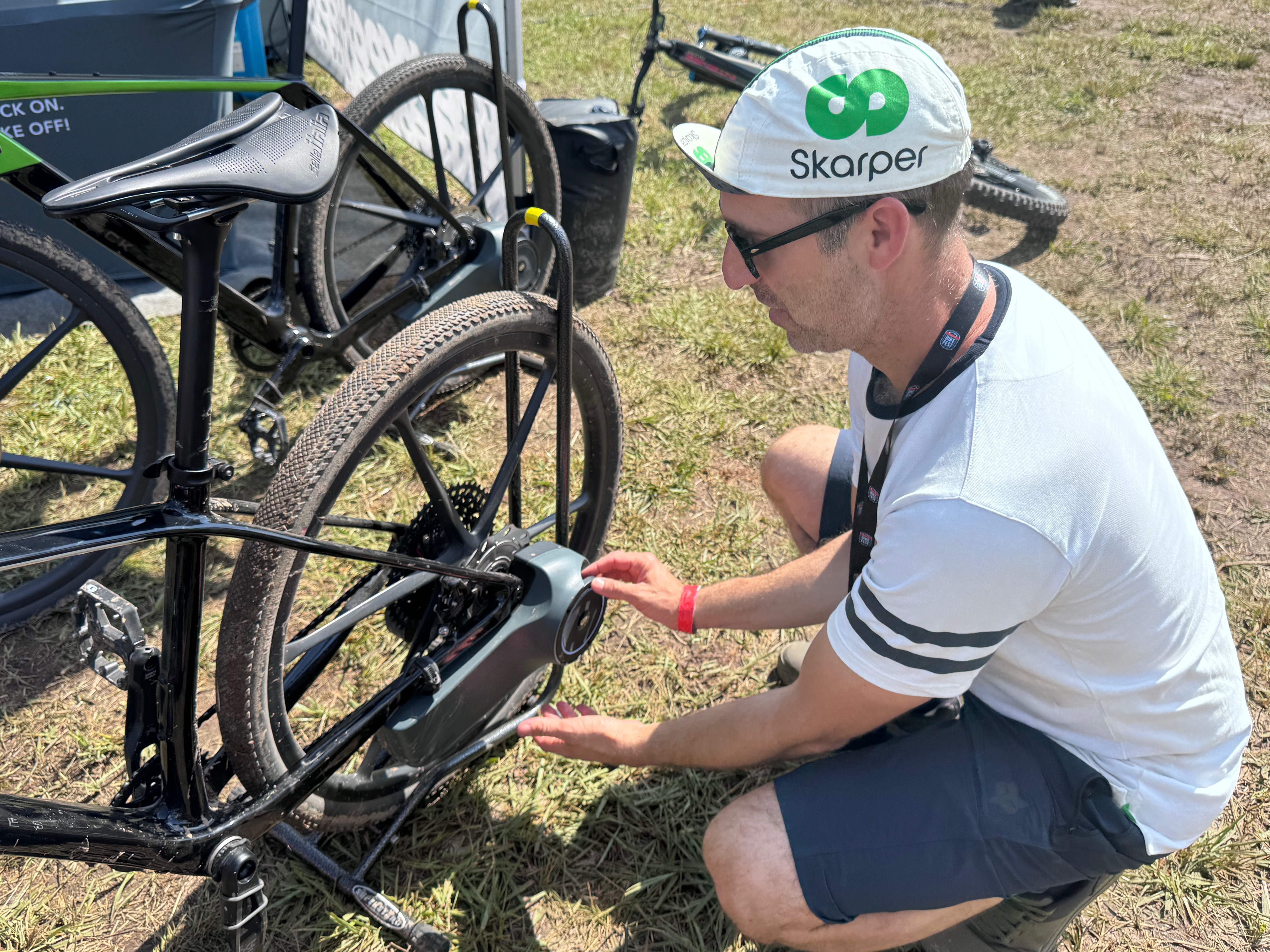 A cadence sensor on the crankarm signals the assist to kick in — there’s no throttle or other controls, although a phone app can be used to adjust modes and other settings and view the battery level. Test riders report it felt like a standard pedal-assist motor. In Eco mode, the 250-watt motor can be set to provide extra assist when a sensor registers that the bike is going uphill. The Eco mode range is up to 50 kilometers (32 miles).
A cadence sensor on the crankarm signals the assist to kick in — there’s no throttle or other controls, although a phone app can be used to adjust modes and other settings and view the battery level. Test riders report it felt like a standard pedal-assist motor. In Eco mode, the 250-watt motor can be set to provide extra assist when a sensor registers that the bike is going uphill. The Eco mode range is up to 50 kilometers (32 miles).
Skarper’s team doesn't see the product as a retrofit motor for tech nerds. Instead they like to call it a third type of e-drive system, joining middrive and hub-drive systems. The initial model will retail for $2,000, making it ideal for a customer with beloved high quality bike they want to electrify (at least some of the time). Customers also could buy multiple drive/brake rotors to swap the unit between bikes in their fleets. We'll report more on the company and its plans for the U.S. market in the magazine.
More information: Skarper.com.
Lockstop, a smart community locking solution
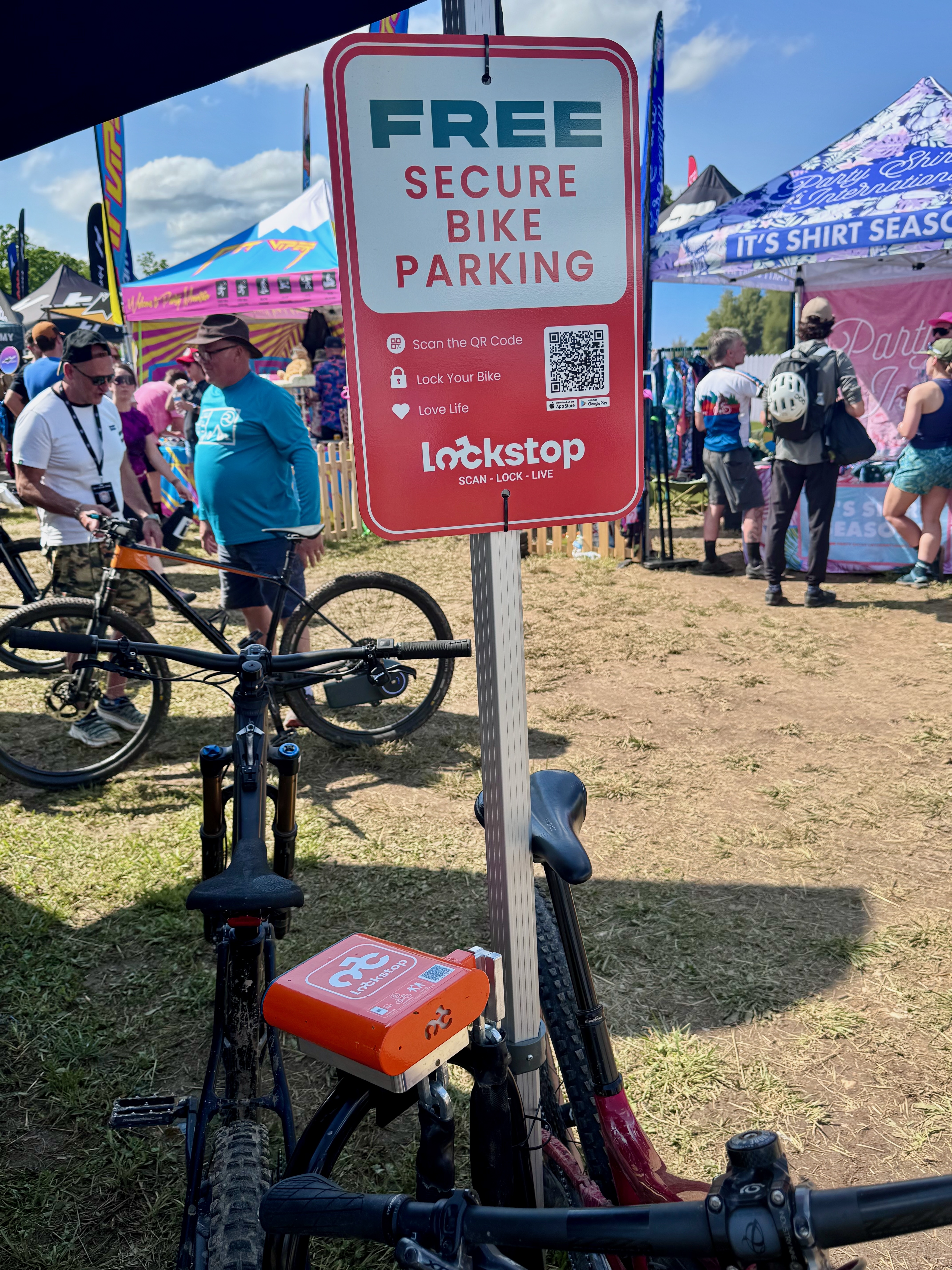
Another AGCA startup, Lockstop offers a sturdy chain lock that is permanently attached to public bike parking, so riders don’t have to carry a lock. The company’s business plan is to allow cyclists with the Lockstop mobile app to use the locked parking locations for free, with the system funded by municipalities hoping to encourage bike usage — and gather lots of information about the locks’ usage and related cycling use.
The system gives operators data on when the locks are used to track bicycle use in their communities, including the amount of pollution that is reduced by bicycle transportation. The user app allows cyclists to ensure a locking space is available at their destination and reserve a spot in the bike rack before they set out on their ride. The system is being tested in Boulder, Colorado, and in Bentonville.
More information: Lockstop.co.
TrailPilot provides audio mountain bike tours
TrailPilot, an AGCA startup from Bentonville, provides audio mountain bike trail directions through a mobile app. The audio tours leverage a phone’s GPS to provide turn by turn directions as well as background information on the trail,highlights, and warnings about challenging sections.
The app currently has routes in several regions of Arkansas; Tennessee; Boise, Idaho; and Vacaville, California, with the tips and directions provided by a local expert. "Ride like a local!" is the app's tagline.
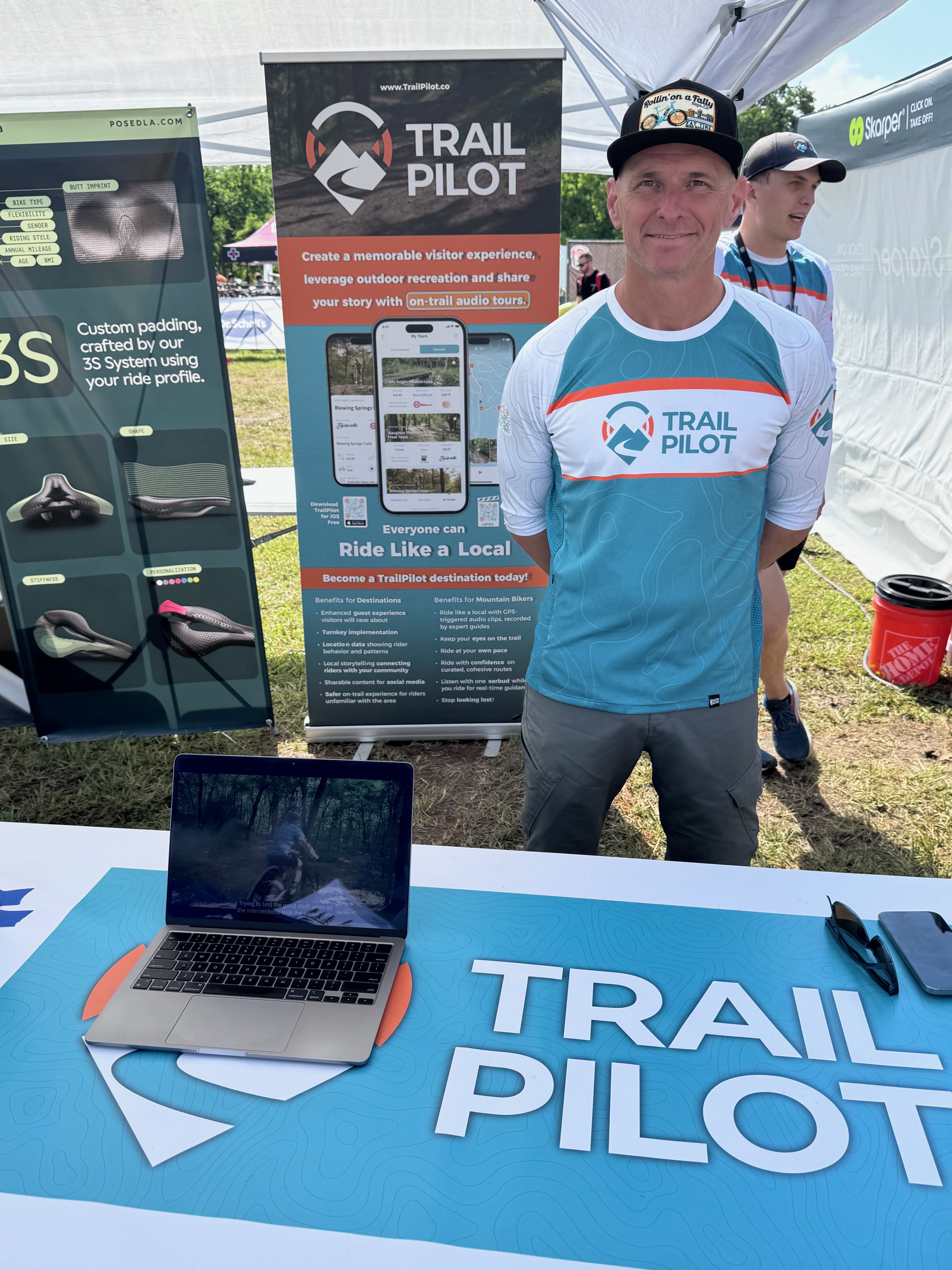
I tested out the app on the Back 40 Wet Weather Route this rainy weekend. The audio directions were provided by local rider and trail builder Charles Williams, whose friendly remarks and encouragements were a lot like having a knowledgeable docent lead a museum tour. I now know why a certain segment on the route is called Moonshiner’s Hollow and why another is called “The Soccer Ball.”
Best of all, I didn’t have to dig out my reading glasses and consult a soggy map at every intersection. On this solo ride it was like having a local friend along, who rode at exactly my preferred pace.
Watch for more on TrailPilot and its business plan in the July magazine.
More information: TrailPilot.co.
Eightpins integrated dropper post
Austria’s Eightpins is not a startup: It has offered an integrated dropper post since about 2016. The post is used as original equipment on some bike models from European brands including Rotwild, Ghost, Bulls, KTM, Merida and Liteville. The company’s Andreas Haimberger was in Bentonville last week in hopes of creating interest among U.S.-based brands for what is mostly an OE product.
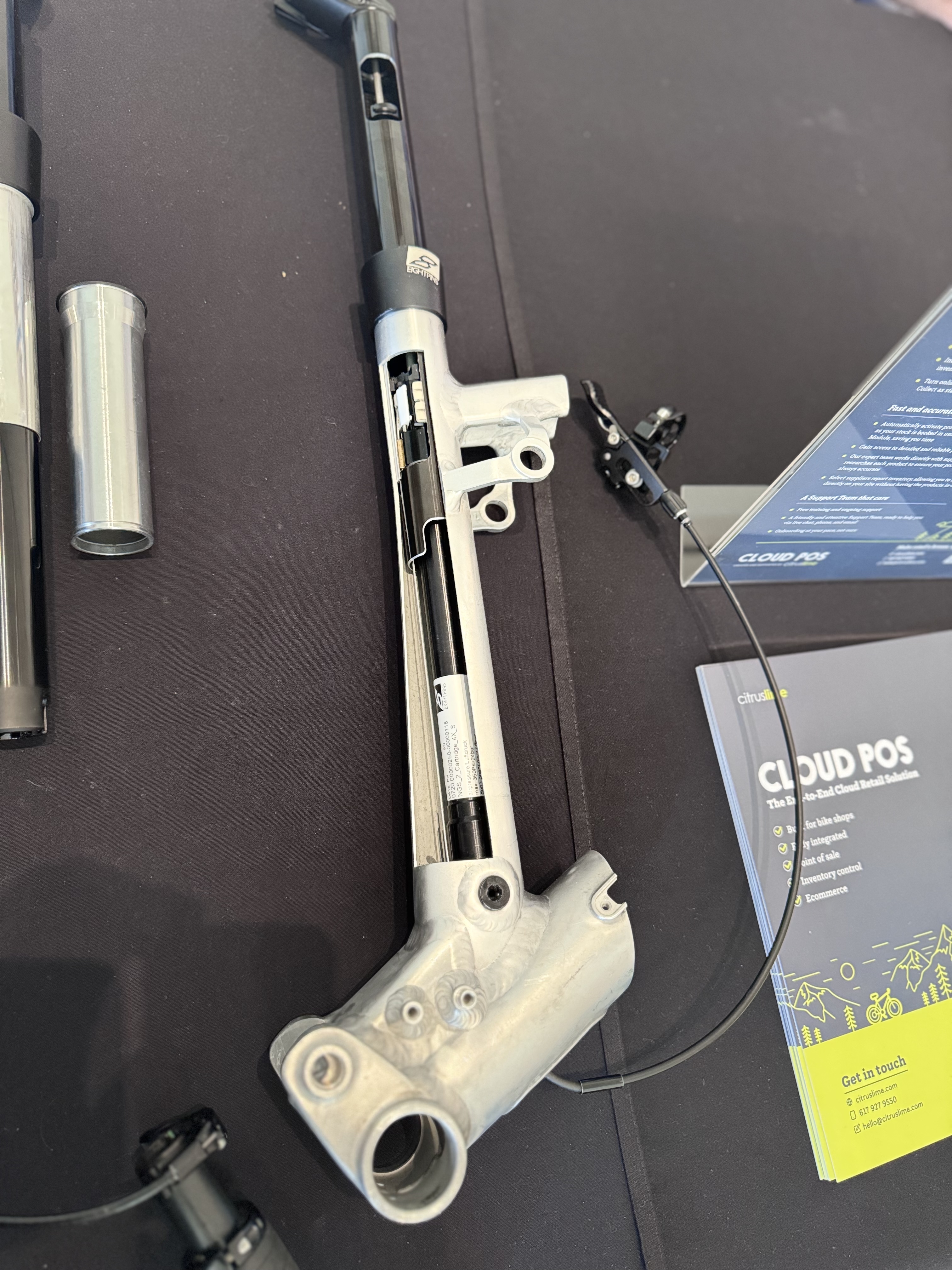 By turning a frame's seat tube into the dropper's housing, the Eightpins design is said to offer reduced weight, a more robust durable system due to larger diameter tubing, and minimal stack height (allowing the saddle to go as low as possible). The system requires a 34.9mm ID seat tube.
By turning a frame's seat tube into the dropper's housing, the Eightpins design is said to offer reduced weight, a more robust durable system due to larger diameter tubing, and minimal stack height (allowing the saddle to go as low as possible). The system requires a 34.9mm ID seat tube.
The system also has its own saddle height adjustment feature, eliminating the seatclamp. Another advantage is the cable connection does not change when the saddle height is raised or lowered, so there’s no need to adjust cable or housing length. The company sells aftermarket posts to cyclists who have compatible models from those brands. The company said it has options to provide appropriate lengths and drops for 99% of riders.
More information: Eightpins.com.

